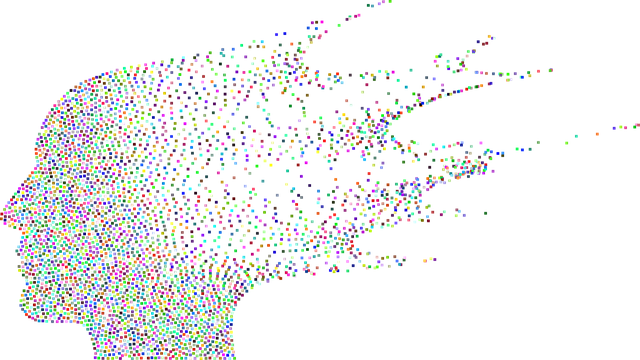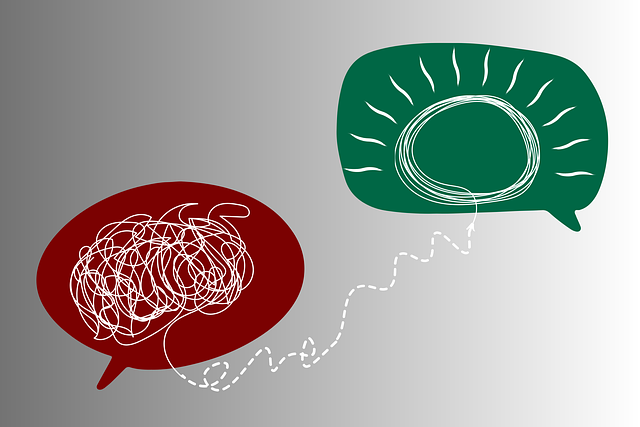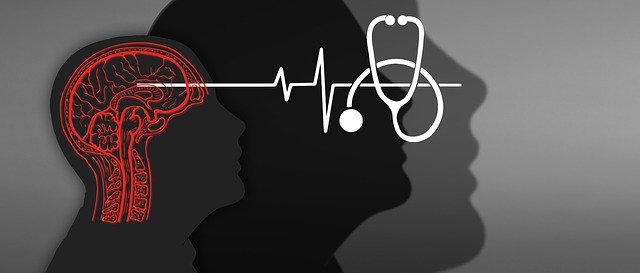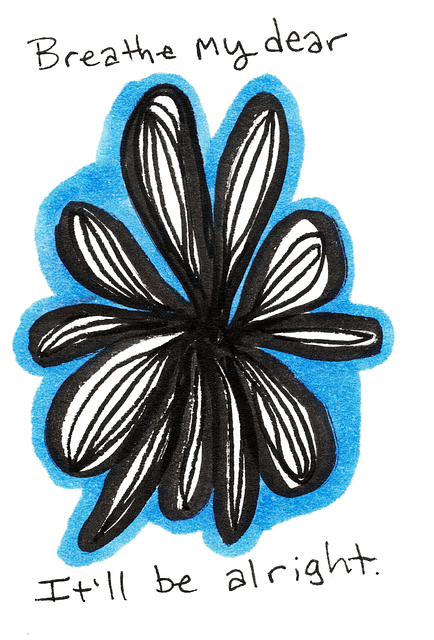In today's fast-paced world, personalized mental wellness coaching is crucial for individuals with developmental disabilities in Arvada, building on the existing framework of Arvada Developmental Disability Therapy (ADT). Effective coaching programs integrate risk assessment and self-care practices, offering tailored strategies to manage stress, anxiety, and mental health concerns. Using evidence-based techniques like cognitive-behavioral therapy and mindfulness exercises, these programs empower clients with developmental disabilities to develop inner strength, improve coping skills, and enhance their quality of life. Success is measured through KPIs aligned with improved mental health outcomes, with regular data collection and feedback integration ensuring program effectiveness and responsiveness to diverse needs.
In today’s fast-paced world, mental wellness coaching programs are gaining traction as essential tools for supporting individuals with developmental disabilities. This article explores the development of such programs, focusing on Arvada Developmental Disability Therapy. We delve into understanding the unique need for customized approaches, designing effective coaching frameworks, implementing evidence-based techniques, and measuring success. By highlighting these aspects, we aim to showcase how tailored mental wellness programs can significantly improve outcomes for individuals in Arvada and beyond.
- Understanding the Need for Customized Mental Wellness Programs
- Designing a Coaching Framework for Developmental Disability Therapy
- Implementing Evidence-Based Techniques in Arvada's Context
- Measuring Success and Continuously Improving the Program
Understanding the Need for Customized Mental Wellness Programs

In today’s fast-paced world, the demand for tailored mental wellness coaching programs is more critical than ever, especially when considering the unique needs of individuals with Arvada developmental disability therapy requirements. A one-size-fits-all approach to mental health support simply doesn’t cut it. Each person’s journey towards well-being is distinct, influenced by their personal history, cultural background, and specific challenges. Thus, effective coaching programs must be designed with flexibility in mind, catering to these diverse needs.
The development of these programs involves a deep understanding of risk assessment for mental health professionals, ensuring that self-care practices are integrated into the core curriculum. By recognizing and addressing individual risks, coaches can facilitate personalized strategies for managing stress, anxiety, and other mental health concerns. This customized approach not only enhances the effectiveness of therapy but also empowers individuals to take an active role in their mental wellness, fostering long-term resilience.
Designing a Coaching Framework for Developmental Disability Therapy

Designing a coaching framework tailored for Arvada Developmental Disability Therapy involves creating structured yet flexible guidelines that support clients’ growth and well-being. This process entails integrating evidence-based practices, such as effective communication strategies, into the coaching model. By teaching and reinforcing active listening, clear expression, and empathy, coaches empower individuals with developmental disabilities to navigate social interactions more confidently.
Moreover, incorporating risk management planning for mental health professionals is vital. This ensures that both therapists and clients are prepared to handle potential challenges or crises, fostering a safe environment conducive to learning. Encouraging self-care practices among participants not only benefits their mental wellness but also strengthens their ability to apply learned skills in daily life. Such an inclusive approach can significantly enhance the overall effectiveness of coaching programs tailored for Arvada Developmental Disability Therapy.
Implementing Evidence-Based Techniques in Arvada's Context

In Arvada, the development of mental wellness coaching programs must be guided by evidence-based techniques tailored to the local context. This involves recognizing the unique needs and challenges faced by individuals with developmental disabilities in this community. By integrating strategies that foster inner strength development and self-care practices, coaches can effectively support clients in managing their moods and promoting overall well-being.
Arvada’s Developmental Disability Therapy (ADT) programs have laid a strong foundation for mental health support. Building upon this, coaching interventions can offer personalized guidance, helping individuals navigate stress, anxiety, and other common mental health concerns. Through evidence-based practices such as cognitive-behavioral therapy techniques, mindfulness exercises, and goal setting, coaches empower clients to develop resilience and improve their quality of life.
Measuring Success and Continuously Improving the Program

Measuring success is a crucial aspect of developing any program, especially those focused on mental wellness coaching. For Arvada Developmental Disability Therapy, defining success involves tracking key performance indicators (KPIs) that align with improved mental health outcomes for participants. These KPIs could include reductions in anxiety and depression symptoms, enhanced coping strategies, and increased engagement in community activities. Regular data collection through surveys, client interviews, and observations allows the program to assess progress and identify areas of improvement.
Continuous improvement is fostered by using feedback from clients, caregivers, and therapists to refine the coaching methods and resources. By integrating insights from the Community Outreach Program Implementation, Arvada Developmental Disability Therapy can tailor its approach to better serve diverse populations. This ongoing cycle of evaluation and refinement ensures that the program remains effective, relevant, and responsive to the evolving mental health needs of its target audience.
The development of personalized mental wellness coaching programs, as exemplified by the Arvada Developmental Disability Therapy initiative, holds immense potential for enhancing well-being. By combining tailored approaches with evidence-based techniques, these programs can effectively support individuals with diverse needs. Continuous evaluation and adaptation, as discussed in this article, are key to ensuring their success and long-term impact on the lives of those seeking mental wellness guidance.













